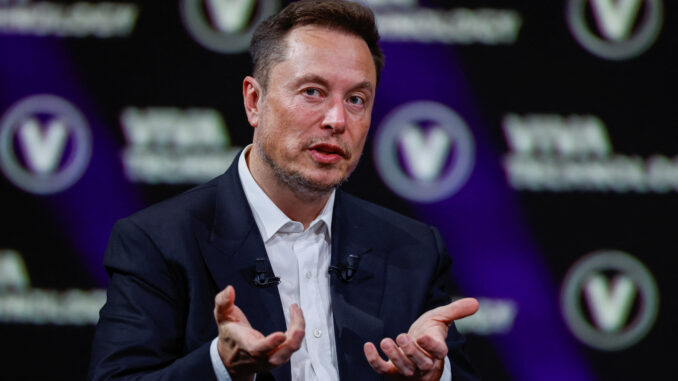
Elon Musk’s decision, which seemed to have come out of left field, to replace Twitter’s blue bird with an “X” may not be a death blow, but it is another nail in the coffin. Basically, Twitter’s press release read, “As of Monday, July 24th, Twitter will be known simply as X.” While questionable, this is Musk’s boldest move since purchasing the social media site last October for $44 billion.
Predictably, Twitter’s constantly irritable users condemned the move as irresponsible, risky, and wrongheaded. Founder of Meta, Mark Zuckerberg, undoubtedly is chuckling at the boost rebranding Twitter as ‘X” will bring to his newly launched Twitter rival Threads, a venture he founded to capitalize on the opportunity Twitter’s decline under Musk’s ownership presents.
Twitter’s core strength is its relevancy. It never made money, nor did it ever become the most prominent social network. However, people immediately go to Twitter to learn more when something happens. Twitter’s appeal lies in its ability to collect information about the present moment, whether it is the death of a notable member of society, a weather event, or traffic. Due to Musk’s missteps, Twitter is losing its relevancy and giving other platforms an opportunity. (e.g., TikTok introducing text-only posts.)
Zuckerberg wants threads to be friendly and news-free, which is all nice and good, but is this what most social media users want? Such a business model does not satisfy the primary reason for being on social media, which is to get news and updates. Furthermore, Threads lacks the features that make Twitter “Twitter.” There are no hashtags to find like-minded individuals or groups. There is no direct messaging, no desktop version, and no way to view only the feeds of those you follow.
Twitter is widely used for informative purposes. It is also a place where people can post relatively freely, which unfortunately has attracted people looking to spread fake news and conspiracy theories or troll to express their anger against those with differing views, making Twitter a toxic digital soup.
As with any platform, Twitter faces the same tension regarding how much to moderate content, not just for users who want hate speech curtailed but also for advertisers who want to avoid risking their brand’s reputation. Instead of addressing this ongoing tension, Musk drove Twitter further into a free-for-all direction. Musk has been quoted saying that Twitter’s increasing moderation was one of the reasons he chose to acquire the company and transform it into a “free speech” platform.
Instead of criticizing Musk for his poor business decisions, we should be praising him. By making Twitter increasingly unappealing and frustrating, Musk has given millions of people a golden opportunity to reduce their social media addiction.
The 37% of Canadians who visit Twitter monthly can now eliminate this time thief. Twitter’s impending demise — yes, I could be wrong; after all, Musk has a business success record far beyond mine — is a chance to reduce the need for the dopamine hit that Twitter gives. The last thing anyone should do is replace the gift Musk is giving us with another social media time-sucking, anxiety-inducing platform, which Threads is no different; it steals time and self-worth.
When a product sucks, users leave or use it less. By making Twitter less useful and fun, Musk is forcing us to reduce our dependence on his product, which is a gift. Imagine he was in the cigarette business and suddenly rationed our access to only 10 cigarettes a day unless you paid extra for a pack stamped with a blue checkmark.
Now, smokers (READ: addicts) are faced with two choices.
Option A: Switch to a similar cigarette company such as Threads, Mastodon, BlueSky CounterSocial or Discord.
Option B: Drastically reduce smoking.
Most will consider Option B.
We are increasingly living our lives online. According to Statista, Canada had 3.3 million Twitter users in 2012. By 2019, the number had risen to 7.6 million. Today, there are approximately 7.9 million Twitter users in Canada. Additionally, according to Statista, 45% of Canadians use Twitter daily.
Due to its addictive properties, social media has rewired our brains. Collectively, we are more angst-ridden, less self-assured, less socially skilled, and more withdrawn today than we were post-social media.
Indeed, consciously uncoupling from a 24/7 short-content service has downsides and will be met with FOMO (Fear of Missing Out). I have yet to quit Twitter. However, in my defence, I have not joined Threads or any other alternatives. Since Musk announced that non-paying users would be limited in what they can see on Twitter, my phone shows that my “Twitter time” has plummeted.
I may not have kicked my Twitter habit completely, but by fundamentally spoiling his product Musk is setting me on the road to recovery. Fingers crossed, I have the discipline not to pick up another social media platform habit.
____________________________________________
Nick Kossovan, a self-described connoisseur of human psychology, writes about what’s on his mind from Toronto. You can follow Nick on Twitter and Instagram @NKossovan

Leave a Reply